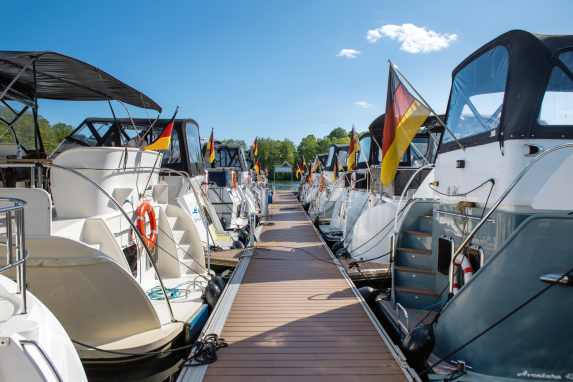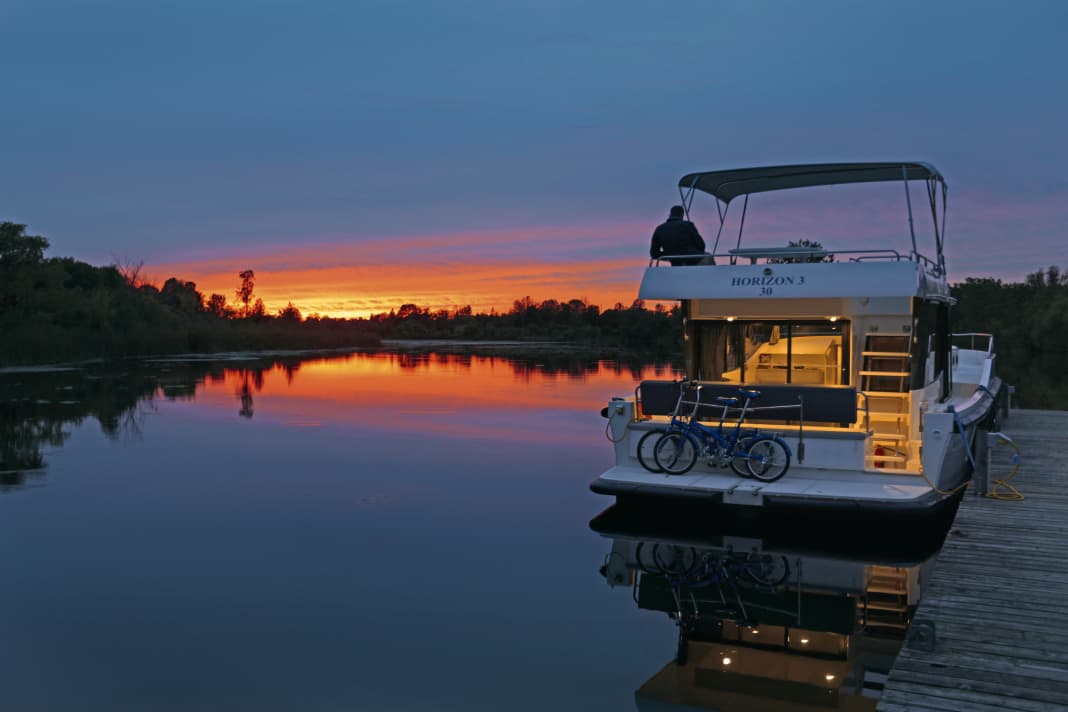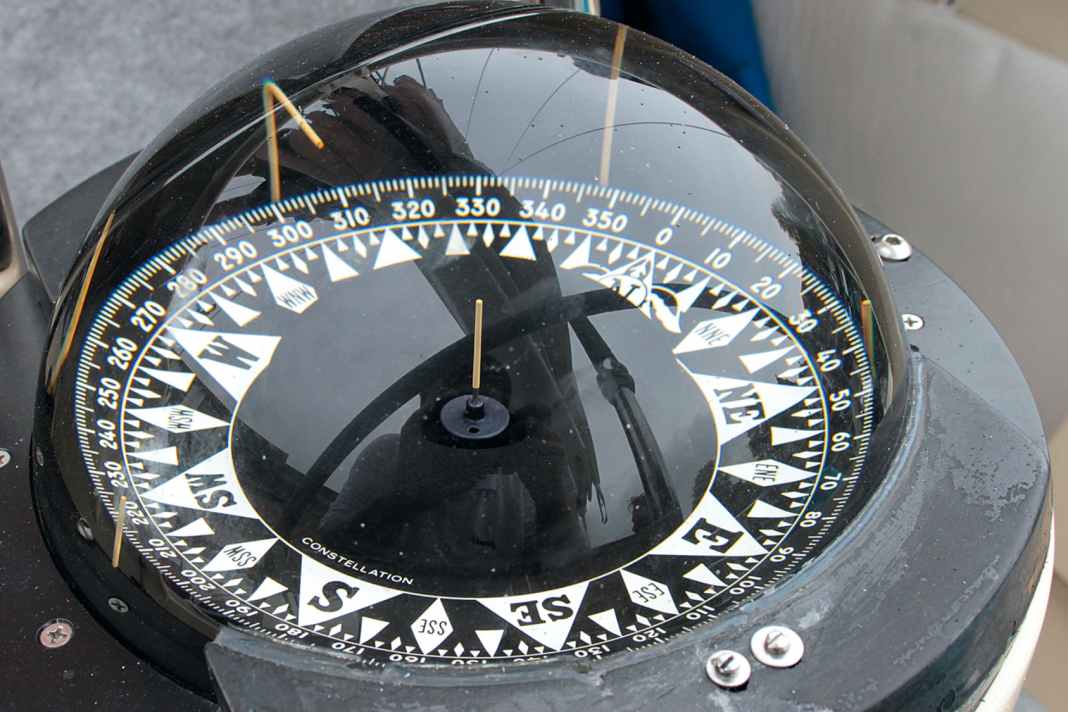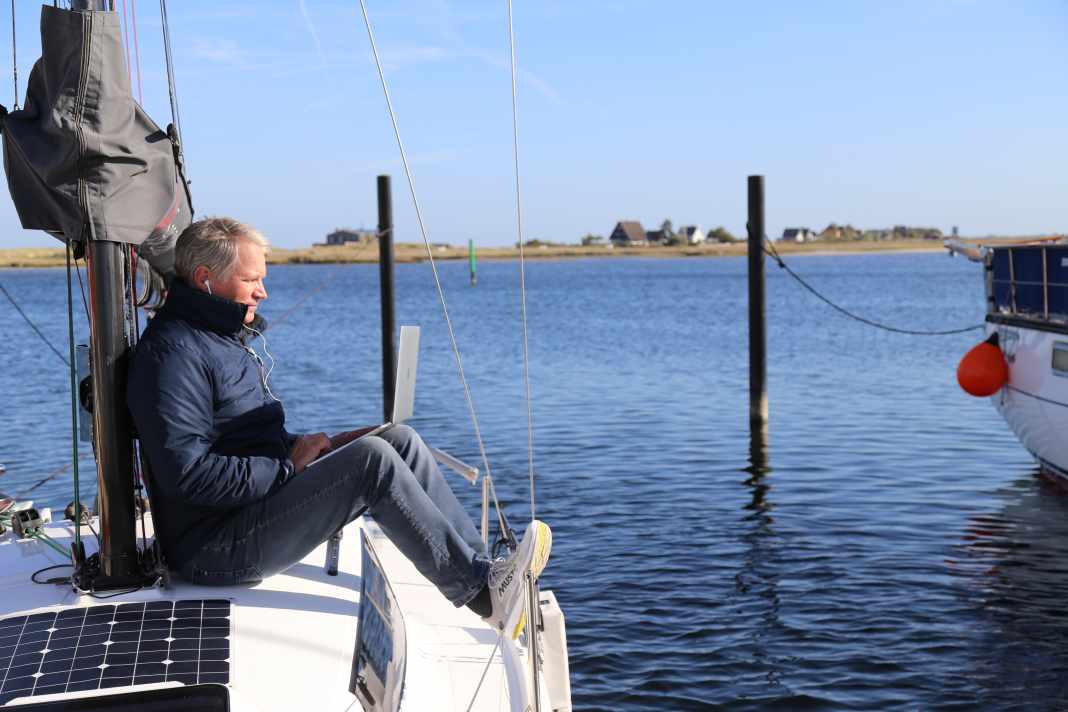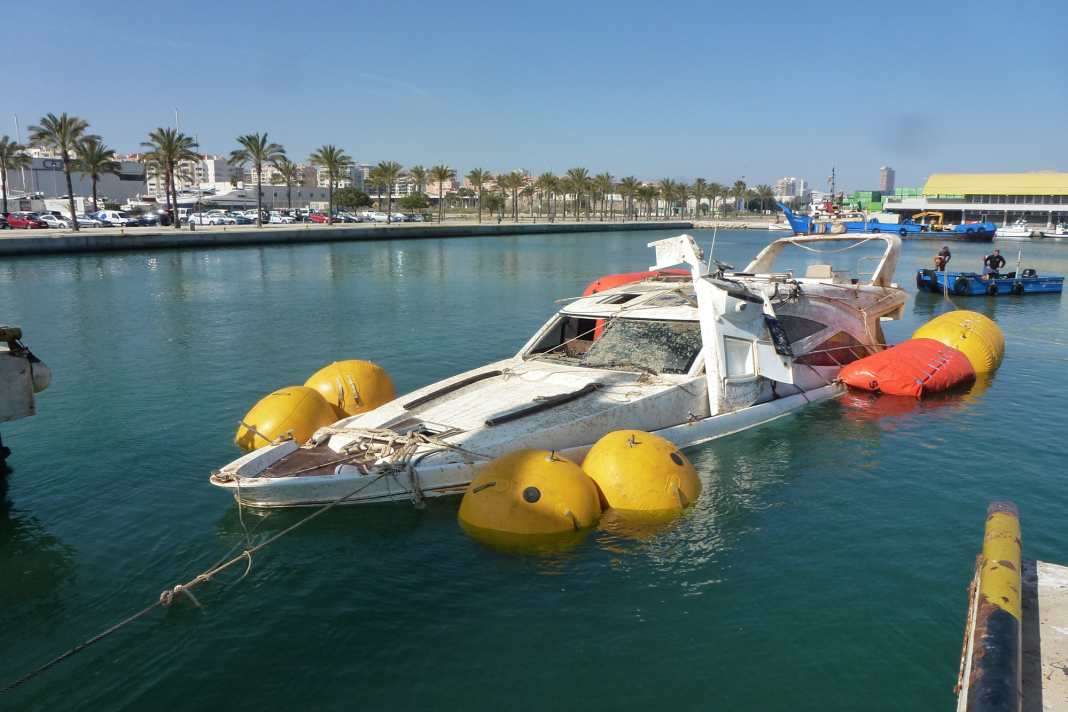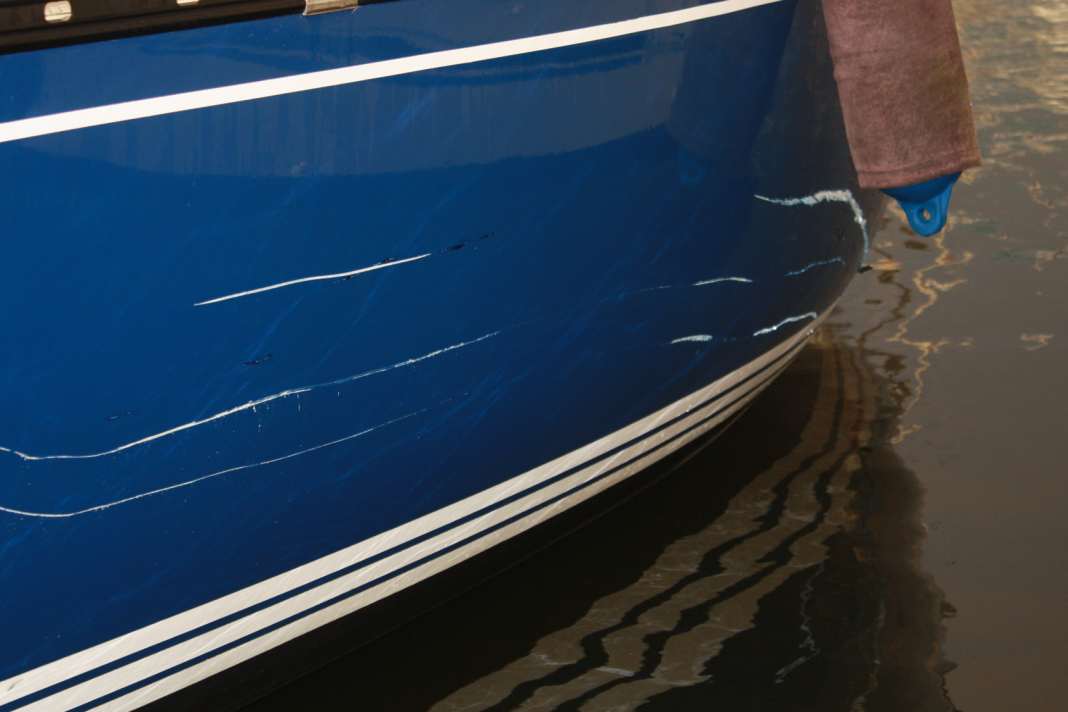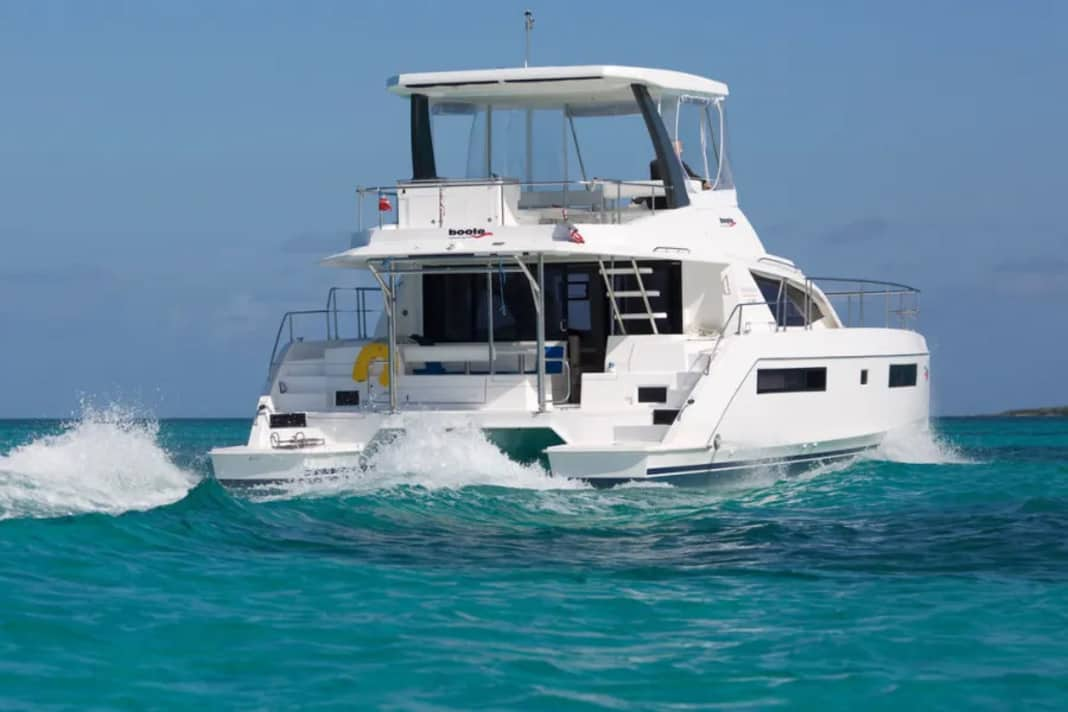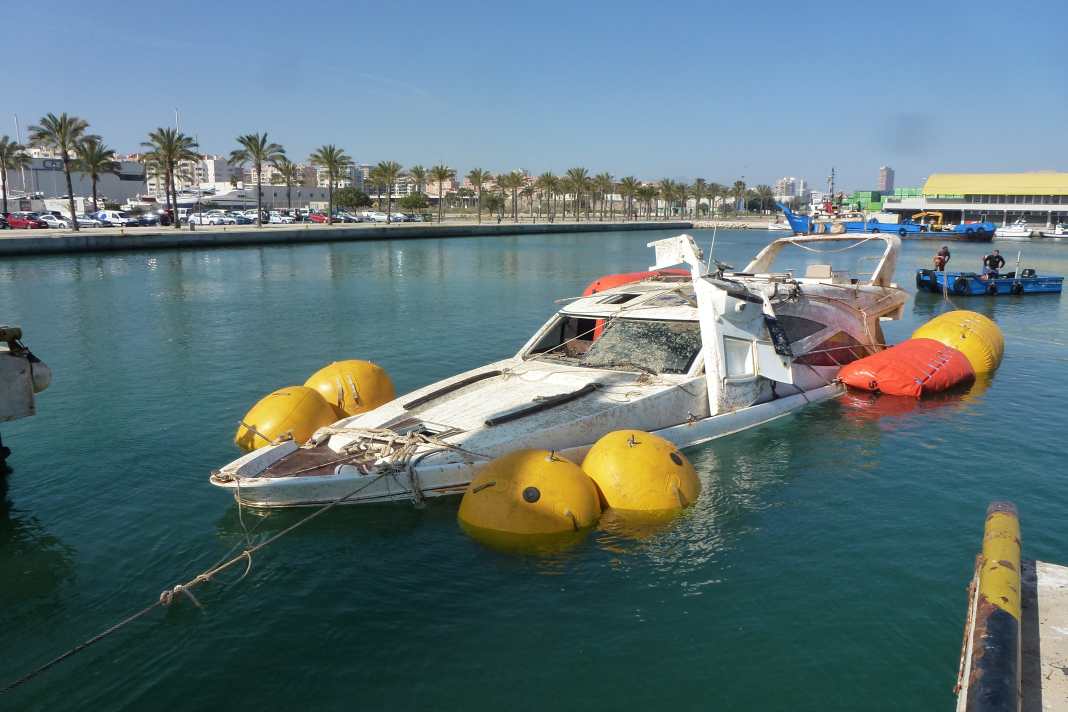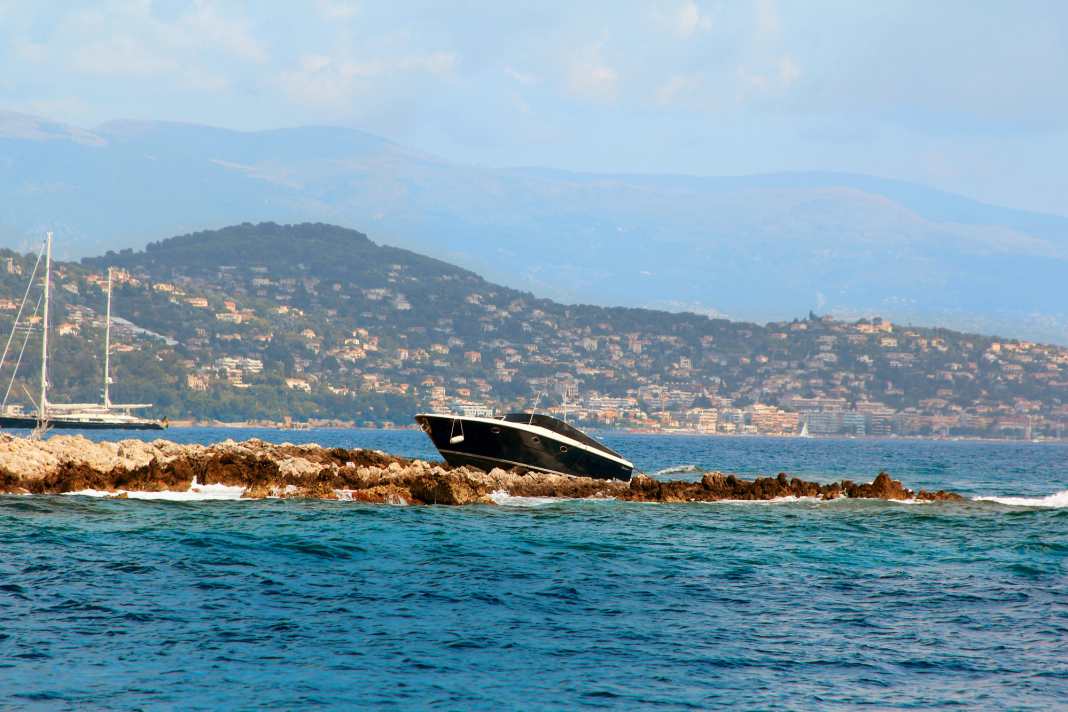Admittedly, insurance is not usually the first thing you think of. Boat buyer think. Nevertheless, they are important, because the dream of great freedom on the water can quickly turn into a nightmare if you are travelling without boat liability insurance. While liability insurance is generally compulsory in many German harbours and in southern countries anyway, there are other types of insurance that you should think about when buying a motorboat.
Comparing tariffs and providers, dealing with risks, liability scenarios or terms such as fault-based liability - that doesn't sound at all like what water sports enthusiasts want to achieve when buying a motorboat. So you'd rather just forget about insurance and assume that it only ever affects others, but never yourself? Absolutely not! Because at least the basic protection provided by boat liability insurance is a prerequisite for being able to travel carefree!
BOOTE has numerous guide articles so that you don't have to get an overview of the topic of boat insurance all by yourself. Guides, tips, comparisons and interviews with specialised insurers should help you to find the right insurance(s) for your boat.
What can happen: From false alarms to sinking
If, after this brief plea for insurance, you are still not convinced that adequate insurance cover is essential, you are probably not aware of all the risks that threaten motorboats both when they are underway and when they are moored in harbours, in winter storage or being transported by road. BOOTE summarises everything that can happen and can lead to major financial difficulties or even personal insolvency without the appropriate protection:
Most cases of damage are still attributable to the use of the boats: Human error leads, for example, to unsuccessful mooring manoeuvres, groundings or collisions with other ships.
But also Forces of nature are often the cause of accidents and damage in times of climate change, when extreme weather conditions are becoming increasingly frequent. Not only boats in motion can be affected, but also those that are moored in harbours and are unmanned.
Also Thefts are unfortunately not uncommon. Both complete yachts and individual parts of boats are stolen time and again. Outboard motors, for example, are a favourite target of thieves. Even if locks and alarm systems can provide some relief here - only appropriate theft insurance offers real security!
However, damage can occur not only to the material - the occupants of the boat can also be harmed. Depending on the intended use of the boat, it may be worth taking out Passenger accident insurance.
Last but not least, a boat brings with it a whole host of new potential disputes (purchase contract, warranty, etc.). Boat buyers should therefore also consider taking out a Legal expenses insurance think about it!
Illness and accident are also events that can lead to high costs without appropriate insurance. So if you don't already have adequate travel insurance cover, you should consider the issue at the latest when you want to travel outside Europe with your boat. With most insurers, it only costs a pittance to be insured against illness abroad all year round. However, there are limits as to how long you can stay abroad. Other travel insurance modules that can be useful are, for example, trip interruption or cancellation insurance. Many credit card models already include all of these benefits, making further contracts unnecessary. In the event of accidents, water sports accident insurance or passenger accident insurance will cover you.
Remember that even a boat of low value can, in the worst-case scenario, result in high costs, even without third-party damage. For example, if a Salvage or wreck removal is necessary!
Also Fires on board represent a scenario in which you can quickly face immense costs if you do not have hull insurance. And even after the end of the season, you are not immune to damage: even if a fire breaks out during winter storage or other forces destroy the boat, only those with hull insurance will receive compensation.
What also happens time and again is that crew members accidentally trigger one of their rescue systems (e.g. EPIRB or DSC) and thus cause an accident. Rescue operation trigger. This can also be expensive without appropriate insurance cover.
Why is boat insurance so important?
Boat owners are fully liable, with all their current and future assets, for any damage they have caused. This can quickly run into the millions. There are yachts in harbours and marinas whose value easily exceeds what most of them will earn in a lifetime. But damage to slipways, cranes, piers, moorings or merchant ships can also cost you dearly. Last but not least, cleaning up environmental damage caused by the loss of oil or fuel as a result of an accident can lead to high costs.
Although boat liability insurance is not a legal requirement in Germany, the vast majority of harbours and winter storage facilities require proof of boat liability insurance. In southern Europe at the latest, you won't get any further without liability insurance, as it is compulsory there.
Under no circumstances should you make the mistake of thinking that your personal liability insurance will also cover you in the event of damage to your motorboat. Just as for your car, you also need your own insurance for your boat.
What boat insurance policies are available?
In short, there are two types of boat insurance: Boat liability insurance and boat hull insurance.
Liability insurance covers third-party damage. It should be taken out regardless of the value of your own boat. A sum insured of at least 7.5 million euros is recommended.
While you should never do without liability insurance, you have to weigh up whether it is worth taking out hull insurance or not. It covers damage to your own boat if someone else is not liable. So if your own fault or a force of nature is responsible for damage to the boat, the hull insurance will cover it. But even if the person responsible is unknown or uninsured and unable to pay, you will be left empty-handed without hull insurance. Finally, the hull insurance also covers the costs of salvage or wreck removal.
The value of your own boat is therefore the yardstick for determining whether hull insurance is worthwhile or not. In contrast to the relatively cheap liability insurance, you have to dig a little deeper into your pockets for hull insurance. For older or very cheap boats, it may therefore be smarter to save on insurance premiums and replace the boat out of your own pocket in the event of a total loss.
What else you should know about comprehensive insurance:
- The system of no-claims classes, as we know it from the motor vehicle sector, does not exist for boat hull insurance.
- Anyone who acts with gross negligence and causes damage as a result cannot assume that the insurance company will be liable (in full). Of course, this also applies to liability insurance.
- Unlike in the motor vehicle sector, so-called fault-based liability applies to boat insurance. Only if someone else is clearly at fault for the damage is they liable - provided they are in a position to do so.
- If the value of a motorboat is increased by new equipment, this must be reported to the insurance company. This does not mean that every new Item of equipment must be indicated. The insurer must only be contacted if a revaluation has clearly taken place.
While liability insurance not only covers material damage to third parties but also, for example, treatment costs resulting from injuries caused, hull insurance naturally does not cover such costs for your own crew members, but only insures the boat and its equipment.
Accident insurance that does not apply to specific persons but to all crew members of a boat is known as passenger accident insurance.
Some insurers offer a slimmed-down version of comprehensive insurance in the form of total loss insurance, which pays out in the event of a total loss but does not include the other benefits of comprehensive insurance.
There are also various additional cover letters to choose from, which include benefits over and above the basic offer. Insurance cover for certain countries, for example, can be one such benefit.
Contracts for the various insurance policies can be taken out independently of each other. However, you can often save money by opting for packages.
Small print: What should you look out for?
If you not only want to be well insured on paper, but also want advice and help in practice, you should look for an insurer that specialises in water sports or at least has the relevant experts. After all, only experts with experience in insuring motorboat sportsmen and sailors know what to do in an emergency and where to get help in the respective country.
It is just as important to take out boat insurance in good time. Dealing with the issue of insurance only after the purchase is not the right way to go. In most cases, the boat is transported to its home waters immediately after purchase - and this harbours many risks of damage. By taking out hull insurance at an early stage, your boat will already enjoy the appropriate protection during transport (regardless of whether this takes place on land or in the water).
Other points that you should definitely check the insurance conditions for are as follows:
- How high is the deductible?
- How high is the sum insured?
- What benefits does the insurance cover?
- Who is insured apart from the policyholder? Can the boat be lent to friends?
- Is all equipment, such as the dinghy, included in the insurance?
- Does the insurance even apply in the destination area?
- Are all possible risks insured?
- Is the insured value a so-called "fixed valuation" (this means that in the event of total loss, the same value is always paid out, namely that of the boat at the time of purchase)?
- Are services such as salvage or wreck removal included?
- Is partial damage compensated without deduction?
- Are there any exclusions of liability?
- Are all conditions to be clearly understood or are there vague formulations that leave room for interpretation?
Cheap offers often come about because the small print contains exclusions or unclear wording - and the insurer can thus wriggle out of its obligation in the event of a claim. More important than saving money at any price is actually having a competent contact person in the event of an emergency and ultimately not being stuck with the costs.
However, this does not mean that you should not compare tariffs and look for the cheapest offer - just not at the expense of quality. You can get information on the Internet, for example. But talking to other boat owners can also give newcomers an initial insight into the world of boat insurance. The global market leader in the field of boat insurance is the Hamburg-based insurer Pantaenius. But the ADAC also offers reliable insurance solutions for skippers.
In any case, (future) boat owners will quickly come to the conclusion that an annual contract is always cheaper than insuring individual trips or shorter periods. You can sometimes also save money by taking out combined packages.
Good seamanship is the best insurance - and irreplaceable
Insurance should never be seen as a substitute for good seamanship. Claims always mean a lot of trouble and work - and an unwanted forced break or even premature end to the season. Anyone who has ever experienced this in the motor vehicle sector can tell you a thing or two about it. Particularly in the case of major damage, the authorisation process can be lengthy, an expert may have to be called in or the legal situation may have to be clarified first. Even if everything is paid for in the end, the process is usually unpleasant and lengthy. Boat insurance should therefore really only be seen as a backup and not as a reason to act carelessly or even negligently.
What insurers are observing is that skippers and crews are relying more and more on technical equipment and are no longer preparing trips as well as they used to. Some insurance claims are therefore due to inadequate seamanship.
All-round carefree on charter boats: What protection do skippers need?
People who charter a boat often don't even think about insurance. Why should they - all risks should normally be covered by the boat owner's insurance, right? Of course, liability and hull insurance must be in place for a charter boat. Charterers can also ask to see the relevant policies to make sure they have the necessary cover.
Nevertheless, there are gaps in the system that can only be closed by so-called skipper liability insurance taken out by the charterer himself. Examples of such cases are as follows:
- The charter company has not paid its insurance premium and therefore no longer has the corresponding insurance cover.
- The skipper's liability insurance also covers claims by crew members against the skipper or each other.
- If unjustified claims by the boat owner against the charterers have to be defended against, the skipper's liability insurance also covers the costs for this.
- Even if the boat liability excess is very high or the sum insured is insufficient, the skipper's liability insurance closes the gap. This is often the case abroad.
- Last but not least, skipper liability also helps if damage is caused by gross negligence. If skippers or crew members behave in a way that common sense tells you could easily cause damage, then normal boat liability insurance does not cover them. Skipper liability, on the other hand, does not exclude damage caused by gross negligence.
Other insurances that may be of interest to charterers are travel cancellation insurance, deposit insurance, international health insurance and accident insurance. These are often available in a package together with skipper liability insurance.
Deposit insurance is a form of cover in the event that the deposit (or part of it) is not refunded due to damage to the charter boat. It can be taken out for various amounts and either as an annual contract or for individual trips.
As with boat insurance, you should check the terms and conditions of travel cancellation and international health insurance for certain points. With travel cancellation insurance, for example, you should pay attention to the excess. For families, it is also important that all family members are reimbursed even if only one person falls ill - after all, it is difficult to leave a child at home alone and it is highly unlikely that the other parent will want to travel alone even if one parent falls ill. Please note: In contrast to all other insurance policies that can be taken out for boats, there are deadlines for taking out travel cancellation insurance!
International health insurance has already been mentioned above. It covers treatment costs in the event of illness or injury abroad. Although you can also be treated within the EU without appropriate insurance, international health insurance can also be useful here. This is because with the "European Health Insurance Card" you are only entitled to treatment according to national standards. Other services, such as repatriation costs, require international health insurance in any case.
Last but not least, accident insurance can close the very last gap in your insurance cover. Normal accident insurance policies do not always cover more specialised accidents that can only happen in the context of water sports. That's why there are special water sports accident insurance policies.
Small price, big impact: Relax on board with the right insurance
Conclusion: The insurance jungle is not that impenetrable after all. Based on the value of the boat, purpose of use and sailing area, it will quickly become clear which insurances make sense. And once you know what you want, it's easy to research and compare.
And let's be honest: compared to all the other expenses that come with a boat, the insurance premium is really not worth mentioning. So it's really not worth being underinsured when travelling.
With BOOTE, the subject of insurance can even be really fun: Case studies, interviews, tips and comparisons are not only informative, but also exciting and entertaining! Perhaps you too will become a real expert in the field of boat insurance - or simply a really relaxed skipper who can enjoy his time on board to the full. Because he is completely covered.


